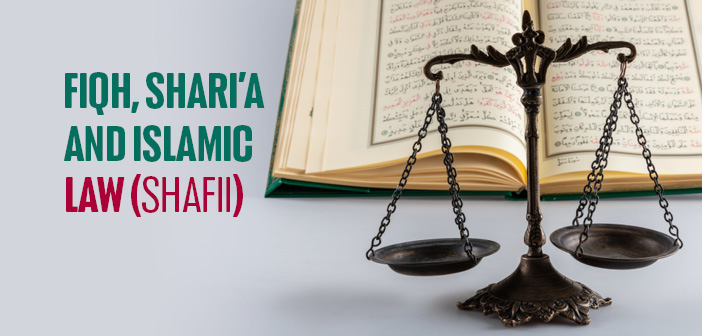What is the fiqh in shafii? What is the sharia in shafii? What is the islamic law in shafii fiqh?
Fiqh, Shari’a and Islamic law are concepts that have similar meanings and are at times used interchangeably. However, there are actually some nuances between their meanings.
Fiqh refers to the knowledge dimension of religion related to practices, and provides mostly information about the acts of individuals. Fiqh is accepted as a science, and issues related to the individual’s relationship with his Creator, especially the acts of worship, are examined in the courses of fiqh.
Shari’a refers to the practical dimension of religion. It is used as synonymous with the term fiqh. The term “shari’a” used in the Qur’an and Sunnah refers to the rulings of Allah, and the mundane, social and governmental dimension of divine order. Allah Almighty commands us in the Qur’an to follow the shari’a as follows, “ And, finally, [O Muhammad,] We have set you on a shari’a by which the purpose [of faith] may be fulfilled: so follow you this [shari’a], and follow not the likes and dislikes of those who do not know [the truth].” (al-Jasiya, 45: 18)
The Holy Qur’an frequently mentions the shari’as of earlier prophets, such as “the Shari’a of Moses” (al-Maida, 5: 48, 49, al-Shura, 42: 13, 21).
The term shar’i often used in connection with the term fiqh means religious. While the term tashri’ means establishing a shari’a and promulgating a law, the word mashru’ coming from the same root denotes the things that are suitable and in accordance with the shari’a, and the law. Moreover, Shari’ means the law maker, which is a term used for Allah Almighty as the One who send the law, and His Messenger who delivers the shari’a to the people.
Islamic Law is the science that deals with the dimension of law related to the state. Today, this term is also used as synonymous to fiqh. In the courses of Islamic law taught at universities, the fact is conveyed of how Muslims can attain happiness and lead peaceful and tranquil life when the Muslim state acts carefully in applying the shar’i principles. In such courses, comparisons with other legal systems also take place.
Source: Fiqh1 (According To The Shafi’i School Of Islamic Law), Erkam Publications





